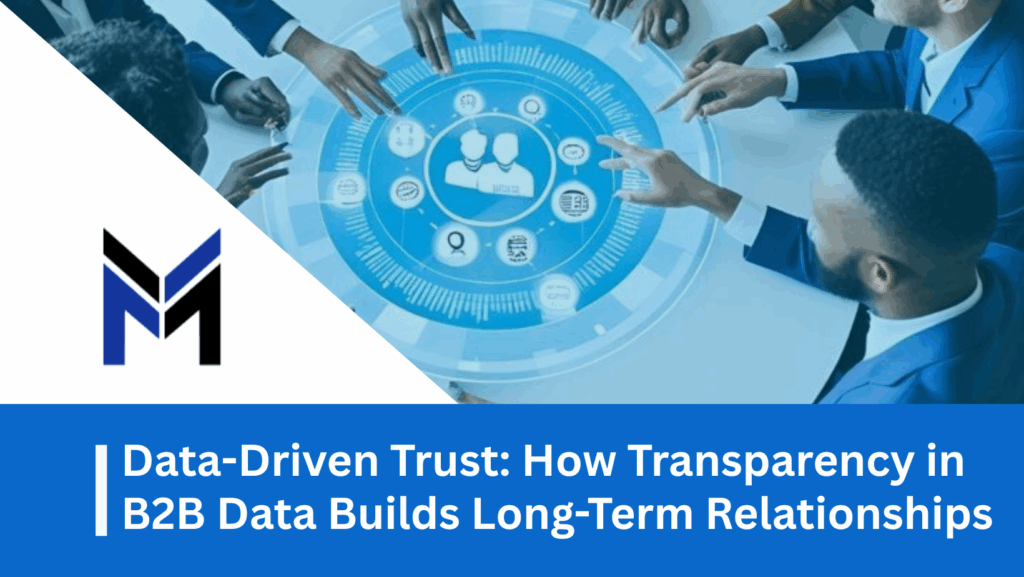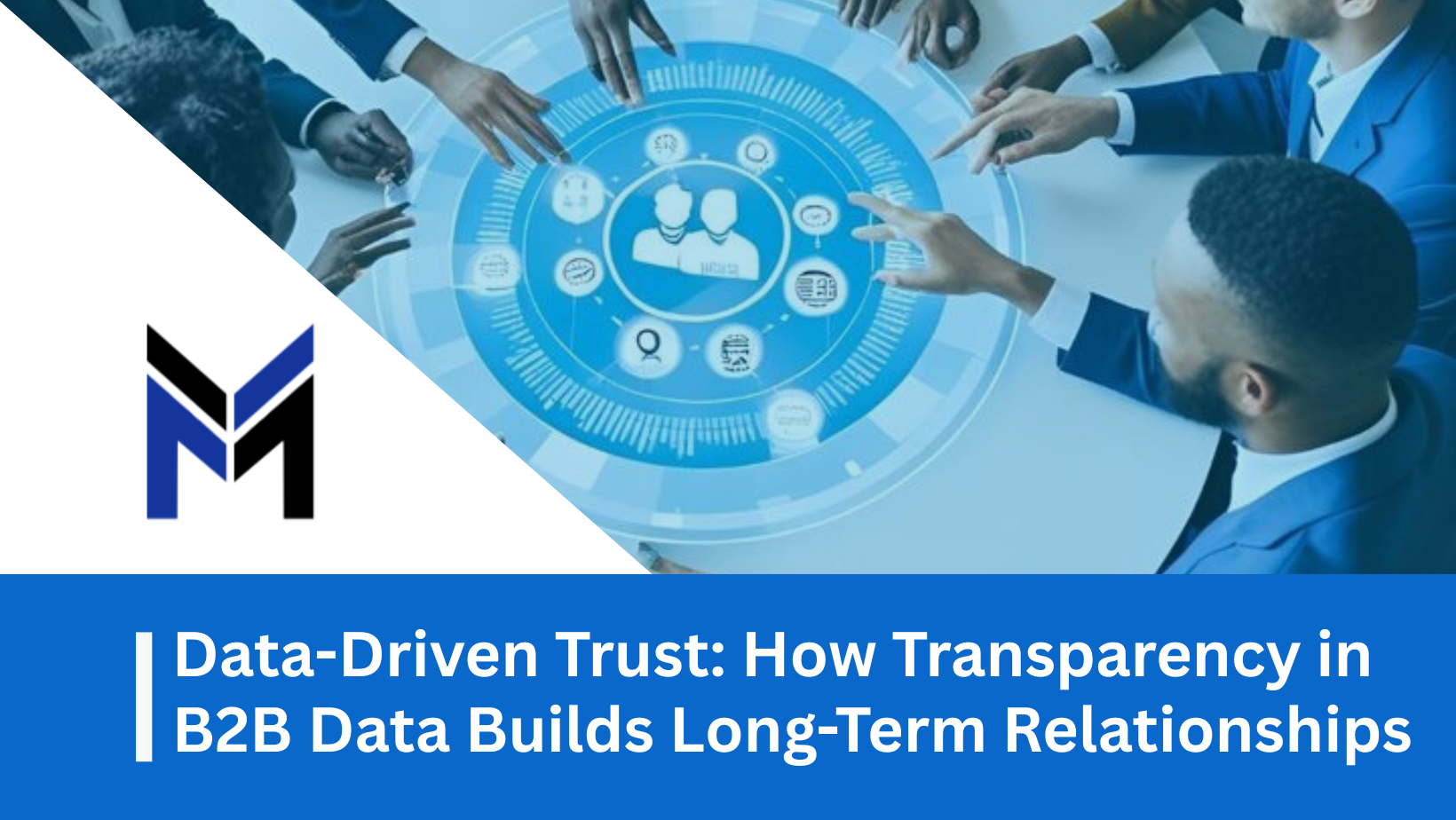Data is the power source that propels choices, methods, and outcomes in the dynamic world of business-to-business marketing and sales. But there is something even more significant—trust—beyond the data, maps, and contact lists. Stronger, lasting connections are built when companies exchange and use data in an open, transparent manner. Transparency in data is no longer optional; it’s essential to success.
What Does Data Transparency Mean?
Being open and truthful about the sources, methods, and quality of your data is known as data transparency. Transparency means, for example, making it clear how recently the business email list was updated, whether the emails have been verified, and where the contacts came from. When buyers are aware of what they are getting and what to look for, they feel safer.
Transparency Builds Confidence
Businesses that disclose their data openly send the message, “We have nothing to hide.” This boosts confidence. Professionalism can be seen when a business discloses its data quality maintenance procedures or the measures it takes to protect client information. The relationship between the customer and seller gets stronger over time as a result of this honesty. Consumers who trust a firm are more likely to use it again.
Reduces Misunderstandings and Disputes
Misunderstanding expectations causes a lot of business transactions to fail. dissatisfaction and mistrust result when a client receives data that is out-of-date or wrong when they think a clear, updated list of top-level management contacts. You lower the possibility of such misconceptions by being open and honest about the limitations and capabilities of your data up front. Relationships and time are both saved by clear communication.
Shows Responsibility and Ethics
Companies are expected to handle data responsibly in today’s data-driven environment. Honesty shows a company’s loyalty to ethical business operations, regulatory compliance, and privacy protection. Partners want to know that the data they use or receive is collected in a way that is both ethical and legal, particularly in business-to-business (B2B) settings where transactions can be high-value and long-term.
Leads to Better Decision-Making
Clients or partners can make better judgments when they have access to clear, transparent data, such as correct from top management emails. They are well aware of their target audience, the type of response they believe in, and the best way to organize their efforts. Results and satisfaction are enhanced by this clarity, which encourages repeat business. Everyone benefits when decisions are based on reliable information.
Supports Long-Term Business Growth
Building trust takes time. Ongoing honesty, however, makes your company stand out over time. Customers who have faith in your data are more likely to stay with you, refer you to others, and look into other services. Being open about your data methods creates a lasting reputation, whether you’re selling mailing lists, analytics, or marketing support.
Transparency in Action: What You Can Do
It’s not necessary to share all of your secrets to be transparent. It just involves being honest and open about the fundamentals. Here are some strategies for implementing transparency in your business-to-business data services:
- Always mention when your data was last updated.
- Clarify how the data was collected (e.g., opt-ins, public sources, surveys).
- Share your verification process (email validation, phone checks, etc).
- Be upfront about any limits or restrictions on the data.
- Respond quickly and honestly to customer queries about data quality.
Conclusion: Trust Is the Real Asset
In B2B marketing, data may open doors, but trust is what keeps them open. A transparent approach to handling and sharing data, such as providing accurate business(small & mid-size) head contact information, shows that your business values truth, clarity, and long-term success. In a world where competition is fierce and choices are many, trust becomes your real advantage. Build it with transparency, and your business relationships will thrive for years to come.
Transparency shows that your business respects the time, money, and expectations of your clients. It sends a message that you’re not just interested in one-time transactions but in building long-term relationships. Clients who trust your data are more likely to invest in your services again, refer you to others, and work with you on larger projects.




